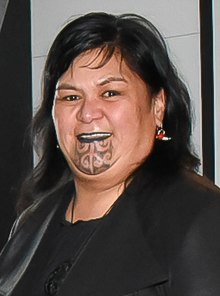NZ to sanction Russian officials in occupied regions of Ukraine
“President Putin’s proxies in Ukrainian territory are seeking to progress the Kremlin’s policies and the objectives of its illegal occupation,” Nanaia Mahuta said.

- Country:
- New Zealand
Aotearoa New Zealand will sanction more officials installed by the Kremlin in separatist regimes in occupied areas of Ukraine, Foreign Affairs Minister Nanaia Mahuta announced today.
“President Putin’s proxies in Ukrainian territory are seeking to progress the Kremlin’s policies and the objectives of its illegal occupation,” Nanaia Mahuta said.
“The sanctions build on earlier measures targeting political and military figures in separatist administrations in breakaway regions of Donetsk and Luhansk. Today’s measures affect 48 officials and one entity.
“The Putin regime has appointed sympathizers as so-called ministers or mayors or in other roles in occupied parts of Ukraine, in an attempt to shore up its illegal presence, and force political integration with Russia through economic, cultural, and military control.
“We will continue to actively pursue sanctions against Kremlin-appointed officials and those who are enabling the occupation to further Russia’s objectives.
“The Russia Sanctions Act passed unanimously by our Parliament in March allows for a wide range of measures on these individuals, including travel bans, asset freezes, prohibitions on financial dealings and bans on ships or aircraft entering New Zealand,” said Nanaia Mahuta.
Six months since the Russia Sanctions Act was passed, Aotearoa New Zealand has placed sanctions on almost 900 individuals and entities, as well as imposed heavy trade measures on Russia.
(With Inputs from New Zealand Government Press Release)
- READ MORE ON:
- Nanaia Mahuta
- Russia
- Russia Sanctions Act










